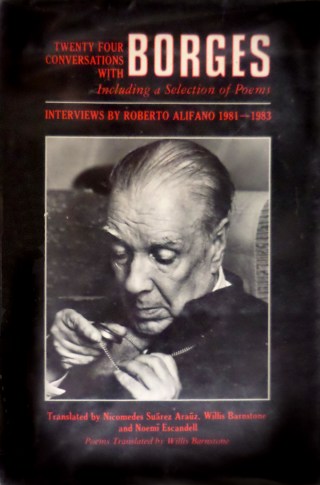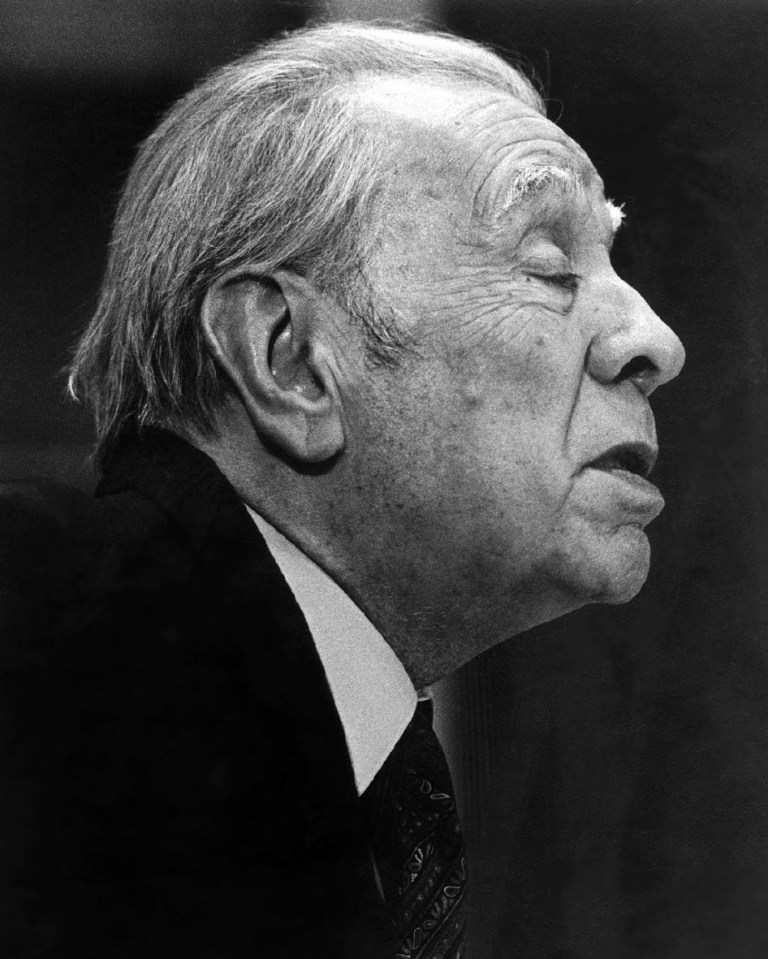Borges on Turning Trauma, Misfortune, and Humiliation into Raw Material for Art
INSPIRATIONAL, 22 Oct 2018
Maria Popova | Brain Pickings – TRANSCEND Media Service
“All that happens to us, including our humiliations, our misfortunes, our embarrassments, all is given to us as raw material, as clay, so that we may shape our art.”
“Forget your personal tragedy,” Ernest Hemingway exhorted his dear friend F. Scott Fitzgerald in a tough-love letter of advice. “Good writers always come back. Always.” It is an insight as true of writers as it is of all artists and of human beings in general, as true of personal tragedy as it is of collective tragedy — something Toni Morrison articulated in her mobilizing manifesto for the writer’s task in troubled times: “There is no time for despair, no place for self-pity, no need for silence, no room for fear. We speak, we write, we do language. That is how civilizations heal.”
That is what Jorge Luis Borges (August 24, 1899–June 14, 1986) — born the same year as Hemingway, writing two decades before Morrison — conveys with uncommon splendor of sentiment in Twenty-Four Conversations with Borges: Including a Selection of Poems (public library) — the record of his dialogues with the Argentine journalist and poet Roberto Alifano, conducted in the final years of Borges’s life, by which point he had been blind for almost thirty years.
In a passage Susan Sontag would come to quote in her magnificent letter to Borges composed on the tenth anniversary of his death, he reflects:
A writer — and, I believe, generally all persons — must think that whatever happens to him or her is a resource. All things have been given to us for a purpose, and an artist must feel this more intensely. All that happens to us, including our humiliations, our misfortunes, our embarrassments, all is given to us as raw material, as clay, so that we may shape our art.
Complement with Simone Weil on how to make use of our suffering, Marina Abramović on turning trauma into fuel for art, and May Sarton on the artist’s task to rise above the tumult of the times, then revisit Borges on writing, the measure of success, collective joy and collective tragedy, the paradox of time, and the illusion of the self.
_______________________________________
 Brain Pickings is the brain child of Maria Popova, an interestingness hunter-gatherer and curious mind at large obsessed with combinatorial creativity who also writes for Wired UK and The Atlantic, among others, and is an MIT Futures of Entertainment Fellow. She has gotten occasional help from a handful of guest contributors.
Brain Pickings is the brain child of Maria Popova, an interestingness hunter-gatherer and curious mind at large obsessed with combinatorial creativity who also writes for Wired UK and The Atlantic, among others, and is an MIT Futures of Entertainment Fellow. She has gotten occasional help from a handful of guest contributors.
Go to Original – brainpickings.org
DISCLAIMER: The statements, views and opinions expressed in pieces republished here are solely those of the authors and do not necessarily represent those of TMS. In accordance with title 17 U.S.C. section 107, this material is distributed without profit to those who have expressed a prior interest in receiving the included information for research and educational purposes. TMS has no affiliation whatsoever with the originator of this article nor is TMS endorsed or sponsored by the originator. “GO TO ORIGINAL” links are provided as a convenience to our readers and allow for verification of authenticity. However, as originating pages are often updated by their originating host sites, the versions posted may not match the versions our readers view when clicking the “GO TO ORIGINAL” links. This site contains copyrighted material the use of which has not always been specifically authorized by the copyright owner. We are making such material available in our efforts to advance understanding of environmental, political, human rights, economic, democracy, scientific, and social justice issues, etc. We believe this constitutes a ‘fair use’ of any such copyrighted material as provided for in section 107 of the US Copyright Law. In accordance with Title 17 U.S.C. Section 107, the material on this site is distributed without profit to those who have expressed a prior interest in receiving the included information for research and educational purposes. For more information go to: http://www.law.cornell.edu/uscode/17/107.shtml. If you wish to use copyrighted material from this site for purposes of your own that go beyond ‘fair use’, you must obtain permission from the copyright owner.

